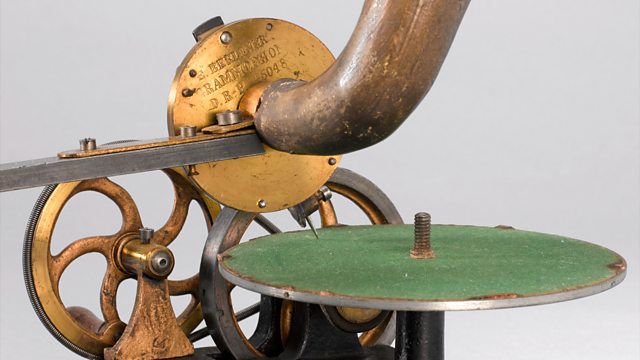Emile Berliner, inventor of the gramophone
The life and work of an innovator whose idea for mass producing sound recordings revolutionised the way we listen to music.
A young immigrant to the USA who started out working in a draper's shop, Emile Berliner ended up paving the way for the world of recordings and home entertainment that we delight in today. But even before he got to work on his recording machine - which he would later call the gramophone - Berliner made a major contribution to another piece of technology that's very familiar to us today: the telephone. And not content with all these achievements, he also promoted the pasteurisation of milk, financed a major scholarship for women to pursue academic research and tried to develop a working helicopter.
So how did Berliner come up with these ideas? Why was he at one point prevented from selling his gramophones and records? And why is his name less well known today than those of his contemporaries Nikola Tesla, Thomas Edison and Alexander Graham Bell?
Bridget Kendall is joined by three Berliner experts: Dr. Anja Borck, director of the Musee des ondes Emile Berliner in Montreal; Sam Brylawski, former head of recorded sound at the Library of Congress in Washington which houses an extensive Berliner archive; and David Giovannoni, a historian of recorded sound and the co-author of E. Berliner's Gramophone - a study of the American disc industry from 1892 to 1900.
[Image: Berliner gramophone, 1890. Credit: Science & Society Picture Library/SSPL/Getty Images]
Last on
More episodes
Previous
Broadcasts
- Thu 8 Jul 2021 09:06GMT大象传媒 World Service
- Thu 8 Jul 2021 23:06GMT大象传媒 World Service
- Sun 11 Jul 2021 13:06GMT大象传媒 World Service News Internet & Online only
Featured in...
![]()
Technology and innovations—The Forum
Machines, materials and methods that changed how the world works
What is the role of libraries in the digital age?
Podcast
-
![]()
The Forum
The programme that explains the present by exploring the past




